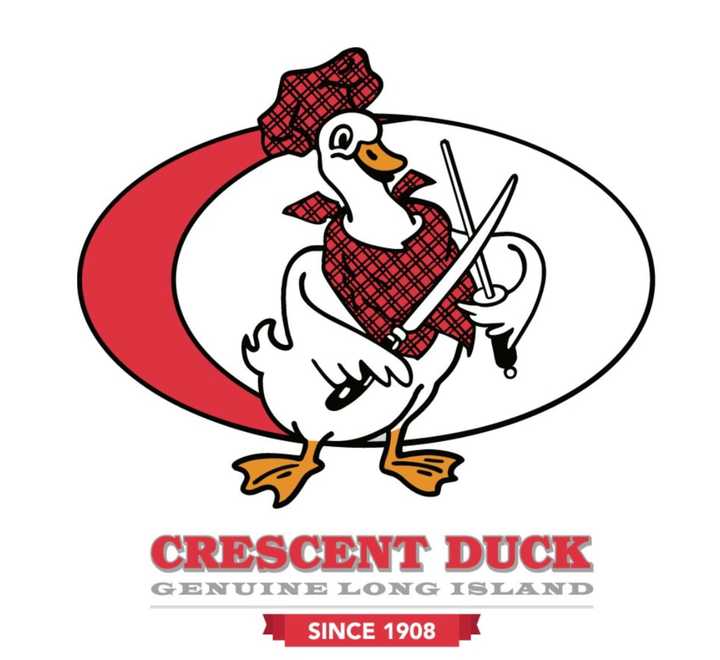Its president, Doug Corwin, is the fifth generation in his family to run the farm.
The business began in 1908 on land purchased by a family ancestor, Matthias Corwin, in 1640.
The farm breeds, hatchers and grows about one million ducks each year on 140 acres.
The farm buys corn, soybean, and wheat and mills it into nutritional pellets to feed the ducks.
"We have over 80 amazing people that work with me," Corwin said.
"For the most part, my customers are large distributors/wholesalers who sell primarily to fine restaurants and markets. Most of the better establishments in the Northeast U.S. that use duck, use our duck."
"Major supermarkets most often tend to buy the cheapest duck, hence retailers aren't our focus. However, there are some fine well-known retailers such as Fresh Direct and Stew Leonards, who insist on our Crescent Duck," Corwin related.
So what is it about Long Island Duck that is special?
"Our U.S. duck industry began and thrived on Long Island. At one point most all duck in the U.S. was raised here. Unfortunately, cost factors drove most of our colleagues out of business. My family farm survived by making our duck meatier than our competition but leaving just enough fat on the duck for taste.
"This led to very strong demand for our duck with restaurant chefs, who repeatedly cook duck night after night. By keeping our duck meatier and more succulent, we thrived and continued to keep the name Long Island Duck strong, despite most other farms closing," he explained.
While Corwin was born into the family business he got a "good start" by having a Cornell education, he said.
His advisor knew Corwin's background and made sure he received a "strong analytical background" in applied chemistry, biology and applied sciences, nutrition, and genetics and studied business with courses in accounting, management, and labor relations.
In addition, "I have been blessed to have many amazing mentors, father, grandfather, various vets and nutritionists along with many others in our farming industry," Corwin said.
Their guidance, Corwin said, instilled a passion in him which along with his education he was able to apply to "making a duck that was desired by the chef and gourmet trades.""
Duck farming is a seven-day-a-week, 365-days a year operation, Corwin said.
"I learned what makes them comfortable. I learned what makes them happy."
"Those parameters are key to keeping duck healthy and thriving. I learned that change is the norm in life. One can never be stagnant."
"One always has to think about the future. Technology changes. Customers and their needs and wants change. Regulations change. One can not ever stop thinking and learning, or one becomes history before one realizes what is happening."
Click here to follow Daily Voice Massapequa and receive free news updates.

